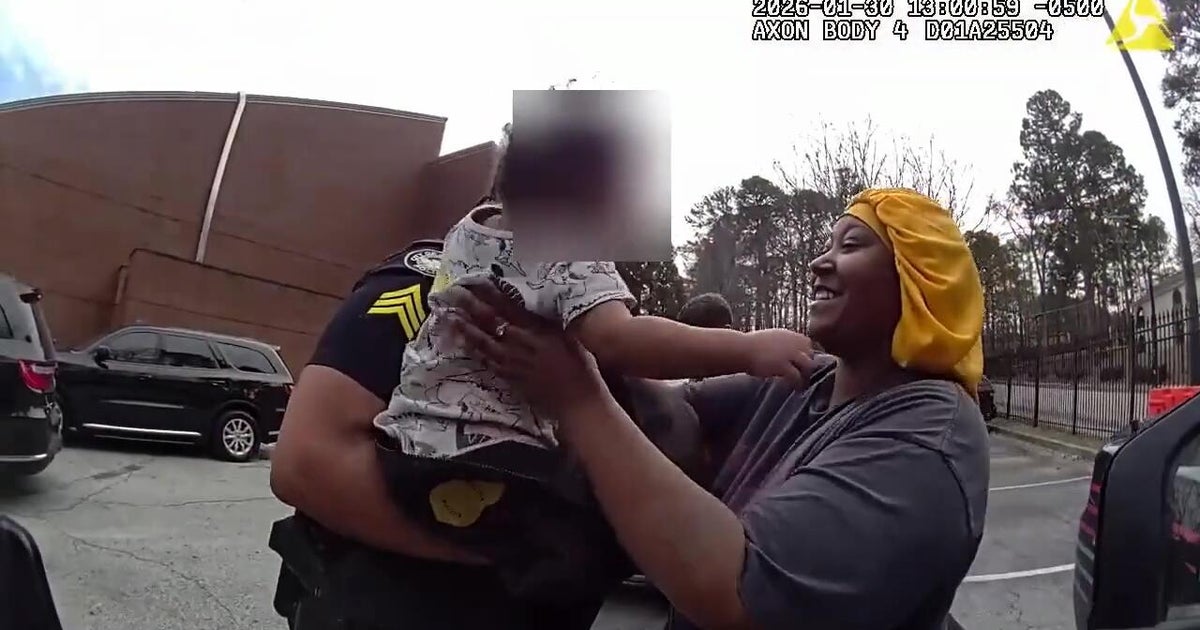Pillowcase Rapist: A convicted sex offender, with three parole violations, was free when he was arrested for attempted kidnapping.
The so-called Pillowcase Rapist was released early from prison and repeatedly violated parole before finally being arrested again for attempted kidnapping. So, were red flags ignored? And why wasn't the sex offender's parole revoked? CBS Sacramento is getting answers.
Sacramento's Pillowcase Rapist
The year was 1984. Ronald Regan was president, the Olympics were in Los Angeles and, across the pond, Prince Harry was born.
In California's capital, a rapist was terrorizing midtown.
Dubbed the Pillowcase Rapist, Ronald Feldmeier would climb into women's windows at night and rape them. He was convicted in 1986 of more than two dozen sex crimes, including sodomy of a child.
"Before they woke up, they would already have a pillowcase over their head and he would take their IDs with him so he knew what they looked like," his child victim recounted. She asked we not reveal her name.
Warnings from a child victim
Feldmeier's child victim was just 4 years old when she says he beat and raped her. He was dating her mother at the time.
Feldmeier was sentenced to 67 years for his sex crimes, but served roughly half, earning early release through in-prison work credits.
When he was released in 2019, his child victim warned that she feared he would strike again.
"To me, it is more dangerous when they're getting out because they don't want to go back," she said.
But Feldmeier is back behind bars. He was recently convicted in Kern County of failing to register as a sex offender. That was for his first parole violation after his early release.
Feldmeier is now facing additional charges for the attempted kidnapping of a woman who says she had to jump from his moving vehicle to escape. That alleged crime happened shortly after he was released from parole.
CBS Sacramento has learned that Feldmeier violated parole at least three times before the alleged crime, but he never faced a parole revocation hearing and was released at the end of his two-year parole term without a formal hearing or review.
Should it have been prevented?
"At the end of the story, obviously there's a new victim and he would have likely been incarcerated if folks had taken a different tack," said Doug Eckenrod, the retired Deputy Director for California State Parole.
He says the sex offender's parole should have been revoked long before the alleged attempted kidnapping.
"I'm shocked at the actions that weren't taken," he said.
Eckenrod cited multiple concerns, beginning with Feldmeier's early release in 2019, which was mandated by a state law.
Feldmeier's early release was due to a 1980s-era work-credit law that gave him one day off his sentence for every day worked. That law was no longer in effect in 2019, but Feldmeier was still entitled to early release because the law was in effect at the time of his conviction.
However, in 2016, Prop 57 gave the CDCR the authority to increase credits as they deemed necessary. Under Governor Gavin Newsom's administration policies, most inmates now receive similar early release credits without the work requirements that Feldmeier had.
"I feel for the victims in this case," Eckenrod said. "Ambushed with somebody getting out decades before they should have, that's painful for the public."
Why wasn't Feldmeier designated an SVP?
Eckenrod's next concern is that Feldmeier was never designated a sexually violent predator or SVP. SVP status would have made him eligible for civil commitment and treatment in a state hospital instead of being released directly to the public after his early release.
"I think what a lot of people don't understand is this man snuck in women's windows and raped them. He sodomized a 4-year-old child. Yet, when he was released after serving half his sentence, he wasn't considered a sexually violent predator. Why?" CBS13 investigative reporter Julie Watts asked.
"You know, that's a great question because it exposes another problem with our sex offender supervision management program," Eckenrod said.
He points to the sex offender scoring system called Static 99.
"It's a predictor of sexually violent recidivism," Eckenrod said, adding that it's weighted heavily on age and years without a new crime.
Feldmeier was behind bars for three decades, so he had no new arrests, and he was in his 60s when he was released. As a result, records show his Static 99 score indicated a very low risk.
However, sex offenders are also supposed to be personally evaluated for mental illness and risk to the public by both corrections and state hospital staff.
"I'd love to see what their assessment was on this offender," Eckenrod said. "Clearly, they were wrong because he went out and offended in a way that was likely to result in a brand new series of victims."
In a statement, first, the Department of Corrections told CBS Sacramento that "it would be the court in the county of commitment who would determine an individual to be an SVP at the end of their sentence."
Except, according to the Department of State Hospitals, that's not accurate. It's the corrections department, then state hospital staff, who determine if someone meets SVP criteria.
Only then can the district attorney petition the courts. In Feldmeier's case, the DA never got that chance because, as the Department of Corrections later admitted, corrections and state hospital staff determined that he did "not meet" SVP criteria.
Why wasn't his parole revoked?
Instead, they released him with two years of parole, which he violated at least three times without a single parole review hearing.
First, Feldmeier failed to update his sex offender registration after moving into a new halfway house in 2020. He claimed he "forgot due to his deteriorating memory" and was charged but remained on parole while awaiting trial.
Court records reveal the defense asked for repeated continuances, delaying the trial for years.
In the meantime, corrections records reveal that within months, Feldmeier violated parole again. Instead of a parole review hearing, he got a verbal reprimand.
A year later, he violated parole again – this time for social media use and for picking up a hitchhiker.
"You add that curfew violation with the fact that he's picking up hitchhikers and using social media -- for what ends?" Eckenrod said. "I would have instructed my staff to go get him right now," Eckenrod said.
Instead, the CDCR says Feldmeier temporarily received increased supervision before being released from parole altogether.
The Department of Corrections has declined multiple interview requests, but in an email, said: "CDCR cannot retain an individual on parole once (their maximum discharge) date is reached," adding, "Under the Penal Code, CDCR is required to informally resolve parole violations before filing a formal petition for parole revocation."
"Well, that's an inaccurate statement," Eckenrod said.
He insists the third violation should have immediately triggered a parole revocation hearing.
"(For) (c)rimes that are similar to their incident offense, you can go directly to arrest to stop the threat to the public," he said.
In a statement, the CDCR also said, in part:
"On Sept. 20, 2022, Feldmeier was discharged by operation of law from parole as he met his maximum discharge date. CDCR cannot retain an individual on parole once this date is reached and his pending court case does not change his maximum discharge date. The two additional parole violations were addressed with increased supervision and special parole conditions per CDCR protocols and did not change his maximum discharge date."
"(The) biggest concern is public safety," Eckenrod said. "I mean, what almost occurred is everyone's worst nightmare. "CDCR better take a good look in the mirror, not be so defensive, be willing to incorporate the constructive criticism that journalists like you are bringing to light so they can help fix this problem."
Back behind bars
Within a year of being released from parole, Feldmeier was back in custody for alleged attempted kidnapping.
Feldmeier is being held without bail while he awaits trial on the attempted kidnapping charges. He is already facing 25 years to life for his conviction this month for failing to register as a sex offender in 2020.








